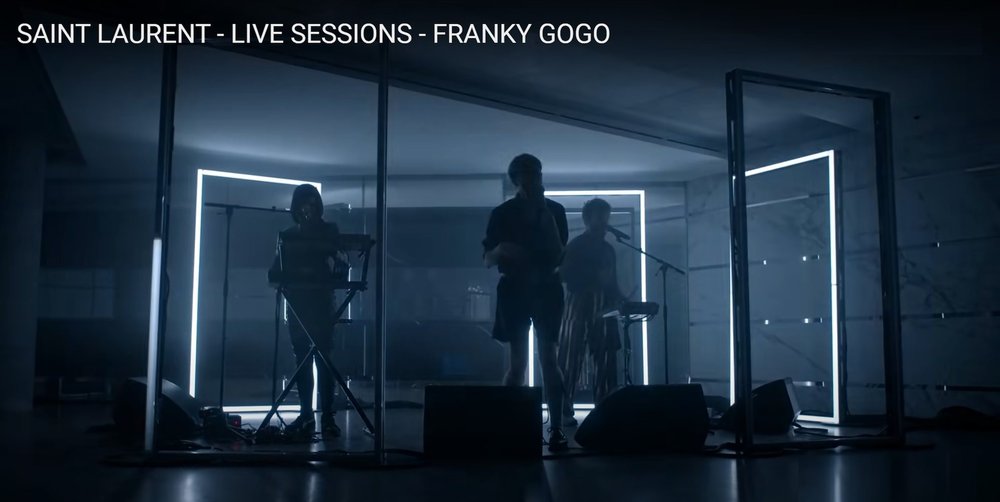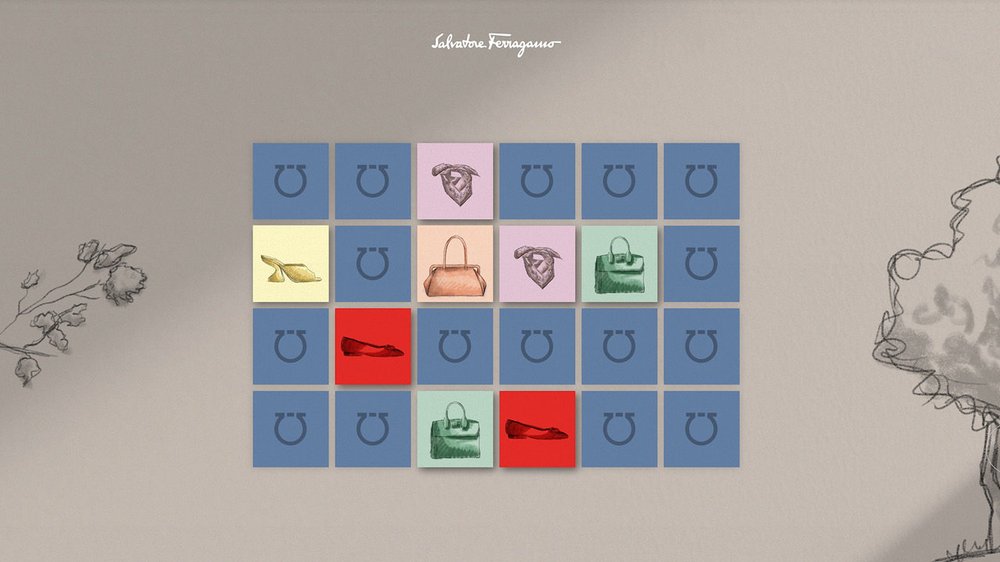In the course of twelve months, the relationship between luxury labels
and the general public has changed radically. Caught up short by the first lockdown, labels initially fumbled in the dark. Then they began to explore a new digital landscape, seeking to start conversations and forge links with their customers, and introducing a spate of original digital projects, more often than not without a direct connection with their products: competitions, cultural initiatives, online courses, cookery and colouring sessions, games, conferences and more. A year later, the exercise is still relevant, boosted by increasingly creative and innovative content forms.

Bottega Veneta has recently released ‘Issue 01’, the first edition of a quarterly digital magazine that enables Creative Director Daniel Lee to articulate the label’s message, by touching on fields such as art and photography, among others. The 133-page virtual magazine, in which exciting images and video clips alternate with more traditional stills and sketches, provides a unique, endlessly changing experience for Bottega Veneta aficionados.
Saint Laurent too has been fostering its brand image through a variety of cultural projects. In addition to publications and exhibitions, the luxury label, owned by the Kering group like Bottega Veneta, has put the accent on music, live-streaming a string of performances by emerging artists from its Parisian store on rue Saint Honoré, at the former premises of Colette. The first live session in March, featuring transgender electro-pop musician Franky Gogo, was perfectly consistent with the spirit Anthony Vaccarello has breathed into Saint Laurent since he took charge of style in 2016.
Olivier Rousteing, who has always been extremely active on social media, especially during the first lockdown, has not remained idle either, and recently launched a project called ‘L’atelier Balmain’, a series of 10 podcasts recounting the Parisian luxury label’s story. Last September, Salvatore Ferragamo released a podcast series that traced the path of its founder, by having his biography read in turn by 22 actors and other celebrities.
Recently, the Florentine luxe label has launched ‘The Metropolitan Enigma’, a digital ‘investigation’ consisting of four parlour games to be solved online. Versace has instead recently announced the creation of the ‘Medusa Power Talks’ website, dedicated to the empowerment of women. In a number of video interviews, several binary and non-binary female celebrities talk about their experiences and their relationship with power, the debate continuing also on emerging social network ClubHouse.
These are only some of the initiatives introduced since the start of the year. “It’s an overarching trend. Previously, there were the print media and physical events. Now, new tools and solutions have emerged. Innovative digital technologies, for example augmented reality, provide scores of opportunities, with extraordinary visual quality. With the pandemic, investment on these digital projects has expanded. Even if other types of events, like physical ones, will make a come-back, this kind of digital activity is here to stay,” said Isabelle Chaboud, Programme Director of the MSc in Fashion Design & Luxury Management at the Grenoble School of Management.

“Labels seek to create content to nurture their communities by targeting multiple segments. Many of them resort to digital tech and gamification, like Balenciaga and Gucci with their recent forays into videogames. Others, like Burberry, create novel experiences. The latter label has replicated its Tokyo flagship virtually, producing an innovative immersive experience. The goal is to reach out to Millennials and Gen Z consumers, who will account for 40% of luxury consumers by 2025. It’s a question of attracting and retaining them,” added Chaboud.
The gaming world is increasingly attractive to luxury labels. Burberry, Louis Vuitton, Valentino and Marc Jacobs, among others, have taken their first step in this domain. “Nowadays, games are strongly correlated with the notion of self-expression. It’s a diversified, inclusive community, one that in this sense is adjacent to fashion,” recently stated Robert Triefus, executive vice president Brand and Customer Engagement at Gucci, speaking at the Vogue Business and TikTok Technology Forum.
During the pandemic, Gucci has accelerated its engagement with the gaming world by designing and occasionally selling digital creations to dress avatars, teaming up with Tennis Clash, The Sims, Genies, Roblox, Pokémon Go and Animal Crossing. The label launched Gucci Arcade in 2019, and the Sneaker Garage app at the end of 2020. According to Triefus, “this generates revenue for [Gucci] and appeals to gamers, enabling them to express their personality.”
“By venturing into the world of videogames, luxury labels are able to capture very young consumers who might turn out to be useful in future. It’s a sort of recruitment drive, also carried out via highly affordable products, like Gucci’s virtual sneakers, that cost about 10 dollars,” said Luca Solca, an analyst at consulting firm Bernstein.
Another key segment for the luxury industry is the Chinese market. Last year, labels staged a spate of events there, relying heavily on local initiatives and China-based projects, tapping Chinese social media too of course.

“The latest Moncler challenge on TikTok totted up 7 billion views, while the live-streamed launch of Moncler’s Fragment collection generated over 32 million views on Weibo in July,” said Chaboud, underlining how there are nearly 1 billion smartphone users in China. “They love leisure content and live streaming,” she added.
Finally, Chaboud said that narratives about the history and heritage of luxury labels are frequently featured in these new digital initiatives because “communicating about a brand’s key codes is a way of forging a community.”

